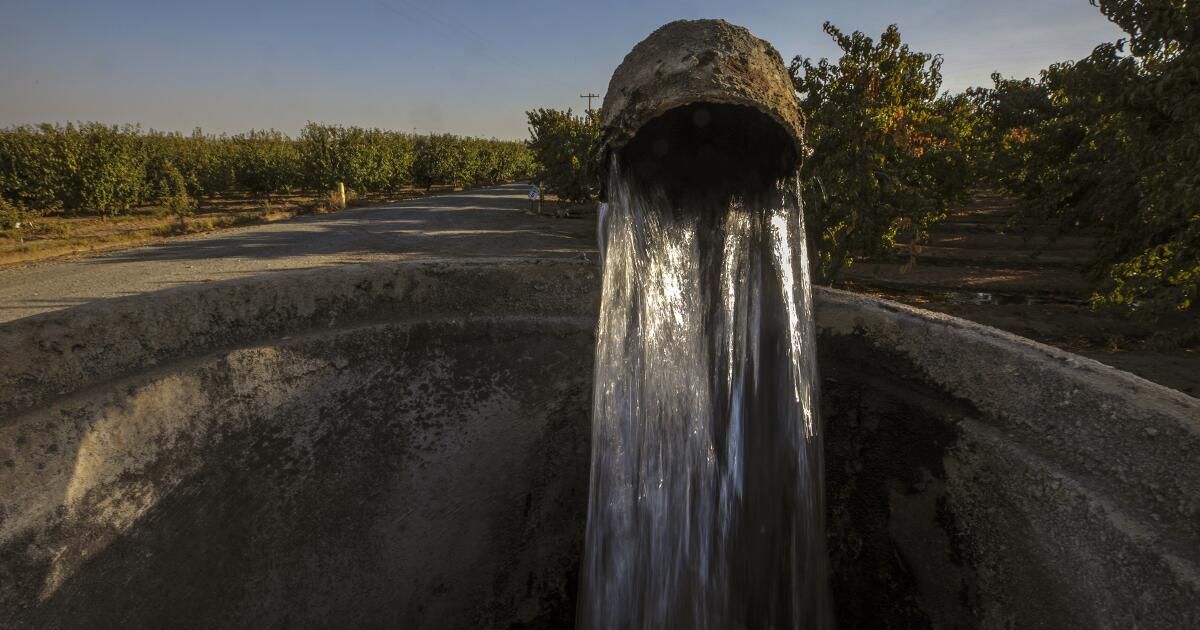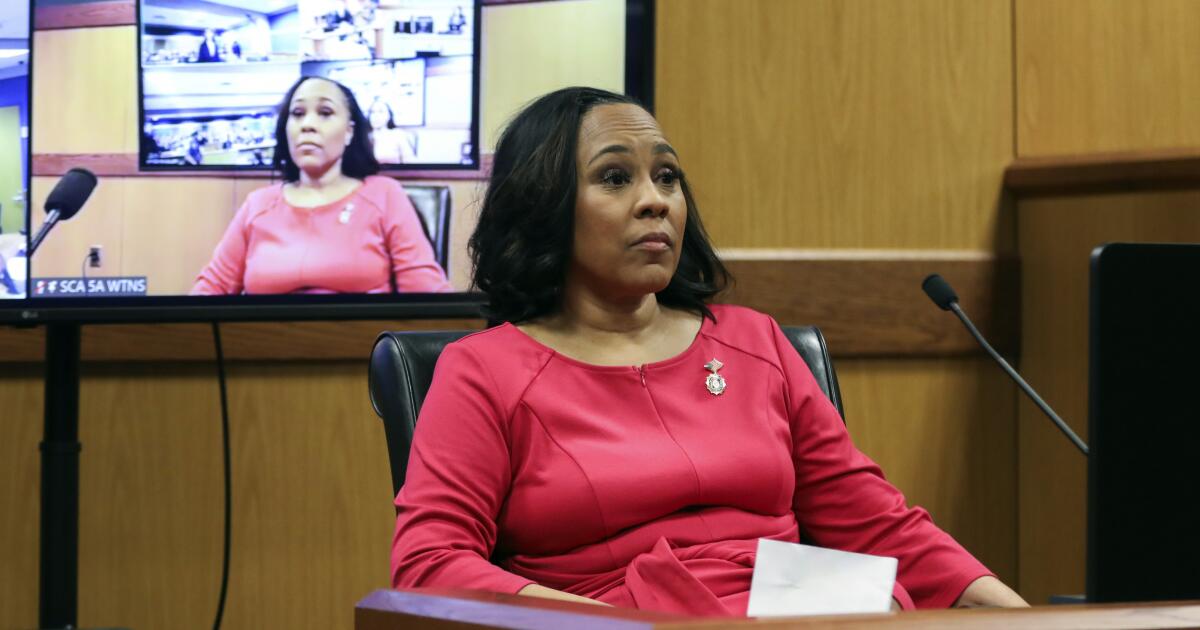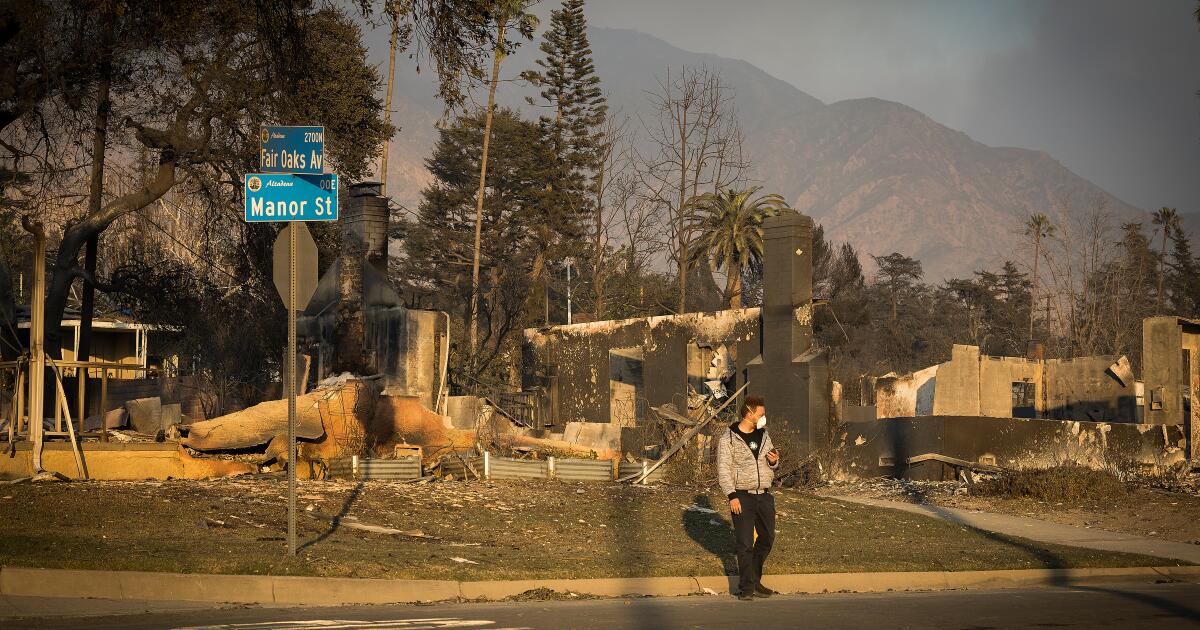To the editor: Why would anyone expect Central Valley water barons to stop pumping groundwater just because they are draining it faster than it can be replaced? (“Their lands are sinking. But Tulare Lake agricultural magnates defy calls to cut off groundwater pumping,” December 27)
Obviously, they would prefer to make current profits rather than save valuable natural resources for future generations of farmers and water drinkers. They also do not seem to worry that the subsidence of the ground level, caused by their pumping, is affecting the infrastructure.
This is where the government comes in. The barons will not regulate themselves. Only the government can alter current practices for the sake of current and future generations.
Now, let’s see if our legislators have the courage to make important decisions regarding water use that will not be popular with their Central Valley donors.
Michael Zapf, Oak Park
..
To the editor: Thank you for the well-researched article on the colossal over-extraction of groundwater by large landowners in the San Joaquin Valley. Finally, the state is placing Tulare Lake Basin agribusiness conglomerates on “parole.”
This, after their over-exploitation had caused the land to sink 6 feet in some places, damaged roads and infrastructure, dried up domestic wells and destroyed taxes, with California taxpayers footing the repair bills.
It is clear that local water agencies, charged with formulating a plan to address the problems of land subsidence, have completely failed and instead operate at the behest of farmers. Thus, companies like JG Boswell Co., the giant in the area, can continue extracting the increasingly scarce resource of groundwater.
Fran Davis, Schooner
..
To the editor: Thank you for highlighting the critical problem of excessive pumping of groundwater causing subsidence.
What percentage of almonds and pistachios grown in the San Joaquin Valley are sold abroad? Overpumping and land subsidence seem like an even bigger problem if wasteful water use is not used to feed people in this country.
Sarah Bottjer, Los Angeles












